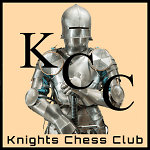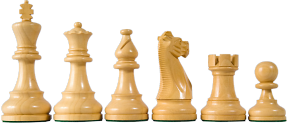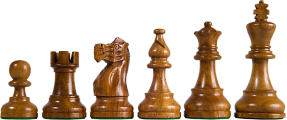
Knights Chess Club
Welcome To All, Young And Old


Sportsmanship In Chess
Always be polite.
Greet your opponent on time in a pleasant way with a handshake. You may say, “it’s a pleasure to meet you, my name is…” or “I look forward to playing you” or “thank you for playing me” or something along those lines. Never make any statement about your game expectations. Do not say anything that may offend your opponent. Also, avoid expressions, body language or gestures that may offend.
Always follow the rules of chess.
If your opponent breaks a rule and does not correct the move when asked, or you disagree about the move, ask a tournament director or person in charge to make a ruling on the situation. Do not argue with your opponent.
Be a good loser or winner.
Following a match, be a good loser or winner. Either way, thank your opponent for a good game with a handshake. If you lost, consider this to be a good learning opportunity and analyze what you might have done different, preferably with your opponent. This is much more productive than getting upset. Remember, you can learn more from a single loss than from many wins, and when you learn you really win. If you won the game, make no statement about having won or celebrate in front of your opponent. Simply thank them for a good game with a handshake.
During tournament Play:
- Use of any notes, printed material, recordings, additional chessboard or computer is prohibited.
- You may not ask for advice on a move, only clarification of rules.
- Do not accept unsolicited advice (those attempting to offer advice should be asked immediately to stop and the tournament director notified).
- No analysis of games is allowed in the playing room.
- No annoying behavior that might distract or annoy the opponent, or other players around you. Always be polite.
- No long absences from a game in progress (15 minutes without permission may cause forfeiture, or you may simply loose too much time on the clock and forfeit on time).
- No quitting without resigning.
- No discussion about the game in progress with anyone.
- No secret discussion with next round opponent about the game play.
- No talking with anyone in the tournament playing room, except for check, checkmate (both only a courtesy), draw offers, indicating an illegal move or a TD (tournament director) ruling request.
- Start your opponent’s clock using the same hand that moved the piece and only after the move is complete, including any pawn promotion. Both clocks may only be stopped when calling over a TD.
- Touched pieces (intentionally as if you were going to move the piece, not accidental) must be moved or captured if legally possible. The move is determined and final when you release the moved piece.
Other Tournament Considerations:
- The Chief TD (Tournament Director) is the tournament authority for enforcement of the USCF Official Rules of Chess and any rulings involving their discretion per the USCF Official Rules of Chess. You may politely ask to appeal an assistant TD opinion to the Chief TD, just like in a court of law.
- Spectators have no special rights or privileges, and may have absolutely no involvement in games being played. Only the players can enforce rules during their games and call the TD when needed. It’s best to have your spectators far away where they can see the back of your head, to avoid any appearance of communication.
- Scorekeeping is strongly advised, but not mandatory for most scholastic tournaments. When you have less than 5 minutes on the clock, scorekeeping is no longer necessary or advised. Scoresheets will allow you to learn from your games and may help resolve disputes regarding illegal moves and draws.
- You may watch other games while your opponent is making their move. However, you should be sure not to let your own clock run very long after their move. Also, never crowd the players or touch the table when you are watching.
- It’s a courtesy to say check or checkmate, but not required.
- Your opponent may borrow your scoresheet to correct errors on their own scoresheet while their own clock is running.
- After a draw offer is rejected, additional draw offers before the position has changed significantly may be reported to the TD as an annoyance.
- Black normally has the choice of equipment, unless their equipment is less standard than White can provide. A digital clock with appropriate time delay is the most standard clock. Tournament standard sets Staunton style having a 3-3/4 inch tall King on a board with 2-1/4 inch squares and algebraic characters on the sides to assist in notation.
- If you’re late, your opponent may begin the game and start the clock at the beginning of the round. If Black is late, White has choice of equipment.






